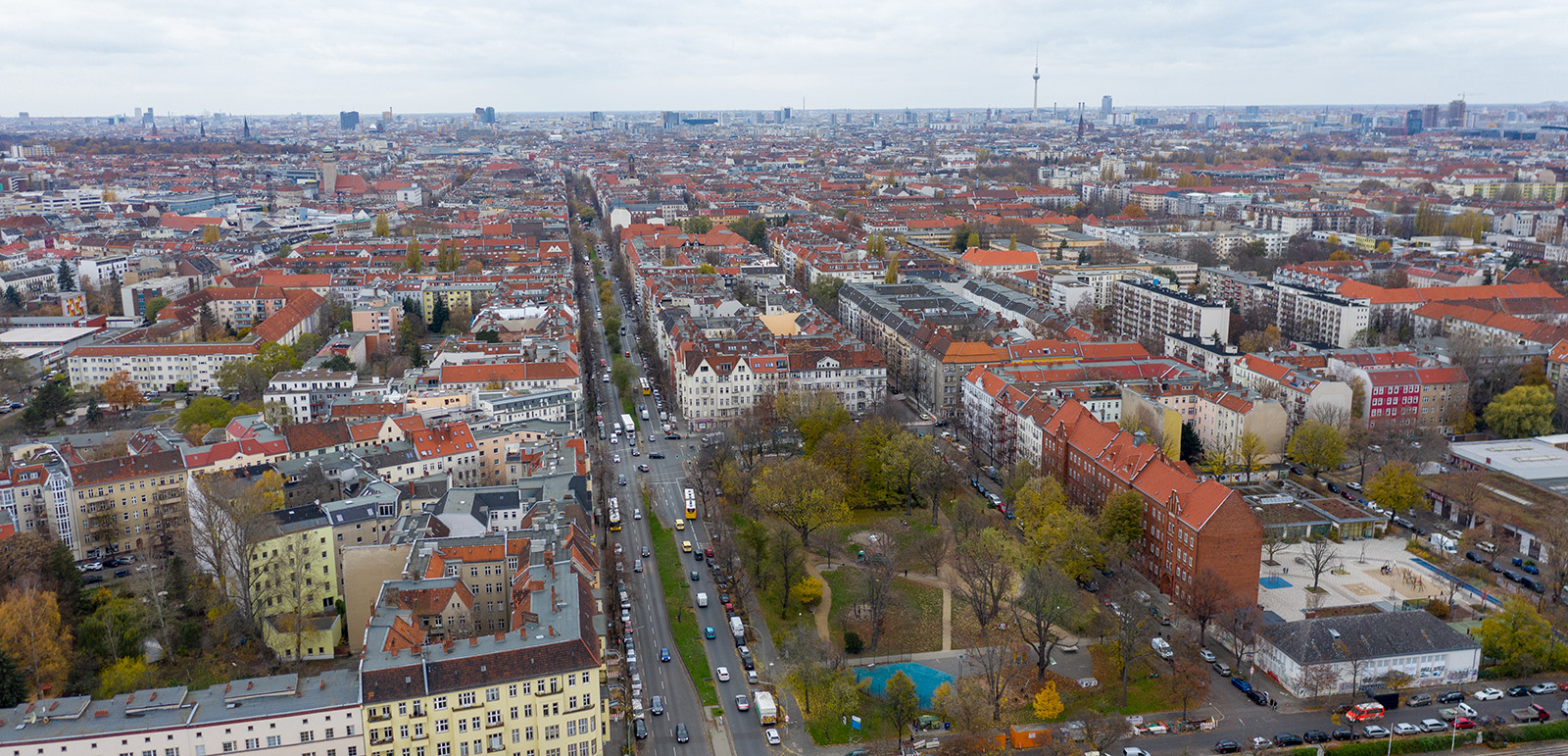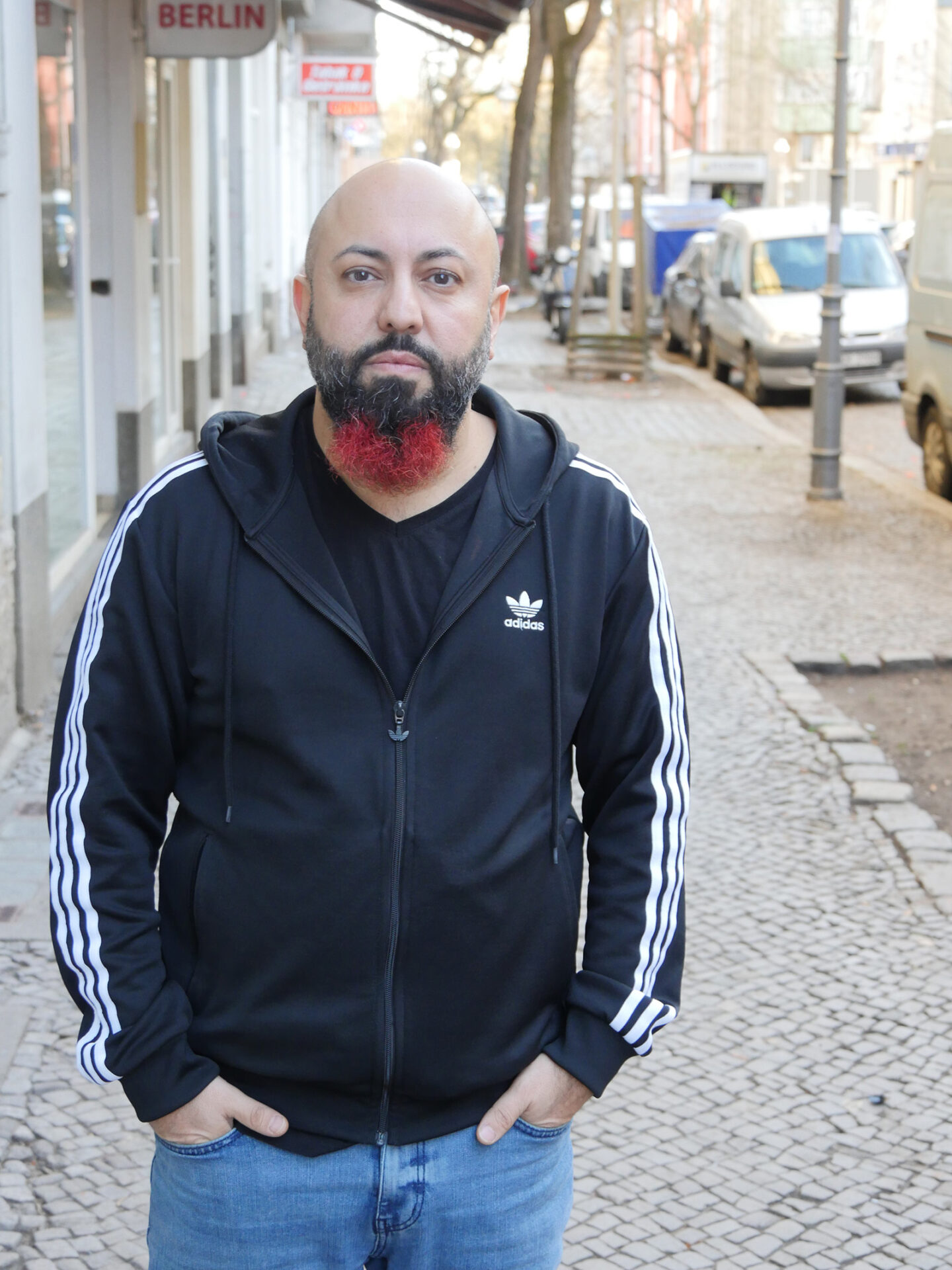Neo-Nazis are terrorising a diverse Berlin neighbourhood
As German courts allow another right-wing extremist to walk free, victims of an emboldened far-right group call for justice
–

“It was just by chance that I woke up,” said Ferat Koçak, recalling the events of a night in 2018 that very nearly cost him his life. “I noticed it was too bright for that time of night, so I went to the window and saw that my car was on fire. The house was already burning, too.”
Koçak, 43, is a representative to Berlin’s parliament with the left-wing party Die Linke. We met in his office on a quiet street in the Neukölln district of Berlin. Down the block, a bakery advertises its wares in neon Arabic script, while two Palestinian flags flutter over the door of a store across the street. The neighbourhood is famously diverse, and is widely considered one of the more tolerant, progressive corners of modern Germany. But, as Koçak, who is a left-wing political activist of Kurdish origin, discovered that February evening, appearances can be deceptive.
“I called the fire department.” Koçak spent the ten minutes it took for the firefighters to turn up trying to stop the fire from spreading to his parents’ house, where he had been visiting. “They told me five minutes later and we would have burned with the house.”
When police arrived at his parents’ house in southern Neukölln, they already had suspects in mind. Two right-wing extremists, known as Tilo P and Sebastian T —German privacy laws prohibit divulging their full names — had been under observation for weeks, as Koçak’s lawyer later discovered. It was believed that both men had been involved in a politically motivated crime spree as part of an extremist group known as the Neukölln Komplex.
“Two weeks before the attack, the police found out that they knew where I lived, but no one ever warned me,” Koçak said.
Despite this intelligence, little is known about Neukölln Komplex. Estimates of the number of crimes that can be attributed to the group vary widely and its membership and organisational structures remain mostly a matter of speculation, though there are strong indications that there may be connections to a right-wing extremist political party called III Weg (The Third Path), which has been recruiting aggressively in Berlin recently.
According to recent reports, however, right-wing extremists connected to the group have committed at least 73 crimes in Neukölln, including 23 arsons, between 2016 and 2020. It is only recently that Berlin’s criminal justice system has attempted to prosecute some of these crimes, and the trial against suspected ringleaders Tilo P. and Sebastian T, which ended last week, was a disappointment to many. Tilo P was only convicted of graffitied threats of murder and relativizing the Holocaust, while Sebastian T was also convicted on unrelated fraud charges.
The verdict was so disturbing that Berlin’s chief prosecutor, Margarete Koppers, took the exceptional step of complaining publicly that it was disappointing and a perceived affront to the independence of the judiciary. The fact that the men have not been convicted of more serious crimes can have a chilling effect on marginalised communities, both in Neukölln and beyond.

Many victims of the numerous far-right attacks in Neukölln attribute the failure of police to apprehend and successfully prosecute those responsible to something far more insidious than bad luck or simple ineptitude.
Experts say long-running right-wing extremist campaigns, like the one witnessed in Neukölln, can have a long-term effect on some of the most vulnerable sections of society, including immigrant populations. “Right-wing extremists try to create a climate of fear,” said a spokesperson from Mobile Beratung Gegen Rechtsextremismus, an organisation that supports victims of right-wing extremism. “The problem can grow more serious if people are under the impression that the state isn’t doing enough.”
Two prosecutors were removed from Koçak’s case after his attorney, Franziska Nedelmann, discovered that police had intercepted a chat between Tilo P and an acquaintance. The prosecutor, Tilo P wrote, voted for the right-wing populist party Alternative für Deutschland.
“He’s on our side,” Tilo P. told his friend, who asked whether the prosecutor had said as much. “He implied it,” Tilo P. replied.
When the gang was suspected of removing a stone laid to commemorate victims of the Holocaust, one police officer said: “We’ll treat it like bicycle theft.”
An independent commission appointed by the Berlin Senate in 2020 to investigate the threat posed by Neukölln Komplex criticised the officer for the remark, but it also stated that the remarks were an isolated incident that did not reflect the broader work of the police force.
Berlin police representatives have declined to comment for this article, citing an ongoing parliamentary investigation into their handling of crimes widely attributed to Neukölln Komplex.
While investigations into the two prosecutors removed from his case are ongoing, Koçak sees it as typical that the conversation between Tilo P and his friend was ignored by both police and prosecutors until his lawyer brought the matter to public attention.
It was activists, not the police, who first recognised the serial nature and the political motivation of the crimes being committed in Neukölln. Koçak has been tireless in raising public awareness about Neukölln Komplex and its alleged activities, organising protests and using his Twitter account to bring news of the group to his 14,000 followers. Without these efforts, it seems unlikely that either an independent investigation or a parliamentary commission into the Neukölln Komplex would have been launched.
Neukölln covers an area of more than 44 square kilometres. While the north of the district is diverse, generally left-wing and rapidly gentrifying, the south is predominantly white working-class and more conservative.
Heinz Ostermann opened a bookshop in southern Neukölln in 2010. “I always knew there were a lot of right-wingers around here,” Ostermann told me, citing Neo-Nazi demonstrations in the early 2000s. Though right-wing extremists have also been active in northern Neukölln, the diverse, heavily Muslim northern part of the neighbourhood can feel very far away from the whiter south. “We have a few people from the Turkish community,” Ostermann said of Rudow Empört Sich (Rudow is Outraged) the initiative he co-founded to fight right-wing extremism in the area, but uniting the efforts of activists from different parts of the neighbourhood remains a challenge. “In northern Neukölln there are countless activist groups. There just aren’t as many activist groups here,” Ostermann said.
It wasn’t until 2016 that Ostermann began having problems. The far-right Alternative für Deutschland (AfD) party had entered parliament and Ostermann, troubled by Germany’s political direction, organised a series of events titled “Neukölln Bookstores Against Right-Wing Populism and Racism.” Shortly after the first event, the windows of his shop were smashed.
“That was in December of 2016. In January of 2017, my car was set on fire directly in front of my house. A year later, they torched it again.”
Ostermann is a conservatively dressed white man in his mid-60s. He projects a down-to-earth common sense. At first glance, he appears to be an unlikely target for right-wing extremists. However, many of the most visible targets of the Neukölln Komplex fit a similar profile.
Members of the clergy have also come under attack. Beate Dirschauer is a pastor whose tires were slashed after she hung a banner protesting right-wing extremism on her parsonage, a home provided by the church. Mirjam Blumenthal, a politician with the centre-left SPD, had her car set on fire while she was working at a left-leaning youth centre. The home of Christiane Schott, a social worker, has been vandalised more than 10 times, after she told members of a far-right political party not to bother putting propaganda in her mailbox.
Just as it is difficult to say when the Neukölln Komplex first emerged, it is equally hard to attribute specific crimes to it. Attacks on ethnic or religious minorities also often go unreported or are not dealt with appropriately when victims do call in the authorities.
Koçak offered the example of the Damascus Bakery, a local business operated by Syrian refugees that was attacked eight times before the police recognised that there was probably a political dimension to the crimes. No one has ever been charged in the crimes.
Even when the perpetrators of racist crimes are convicted, he argued, the justice system frequently fails to recognise the gravity of the offences. Last year, Tilo P was found guilty of beating a Jordanian taxi driver. Witnesses reported that P. screamed racial slurs at the victim, while he and an accomplice beat the older man with their fists and a bat. Tilo P was sentenced to 18 months of probation and was ordered to pay a fine to the victim.
In October 2020 former provincial police chief Uta Leichsenring and public prosecutor Dr Herbert Diemer were appointed to lead an investigation into the continued failure of Berlin’s authorities to bring the perpetrators of the Neukölln Komplex-related crime to justice. Their May 2021 report stated that there was little evidence to support accusations of official misconduct.
Observers such as Orkan Özedemir, a member of Berlin’s parliament, have called this conclusion into question. At a recent sitting of the parliamentary commission investigating Neukölln Komplex, Özdemir raised concerns that the police records on which the committee relied might not have been accurate or comprehensive — police might have falsely claimed to conduct interviews or collect evidence. They call the reliability of its data into question. Özedemir also raised the complaints of victims that information provided by victims was considered in the final report.
The report also failed to consider the potential complicity of the judiciary, a surprising oversight given the number of well-publicised cases of right-wing extremism among Germany’s judges in recent years.
In contrast to the crimes attributed to the Neukölln Komplex, Koçak points to laws that grant wide-ranging powers to the state when investigating alleged conspiracies committed by Islamist groups, left-wing extremists, and environmental activists.
“A lot of leftists, a lot of climate activists are punished under these laws, but when it comes to right-wing extremists, they’re always treated as lone wolves.”
Referring to the late Auschwitz survivor and activist, he said: “As Esther Bejarano always used to say, if you fight Nazis, you can’t count on the State.”
Topics
Get the Hyphen weekly
Subscribe to Hyphen’s weekly round-up for insightful reportage, commentary and the latest arts and lifestyle coverage, from across the UK and Europe
